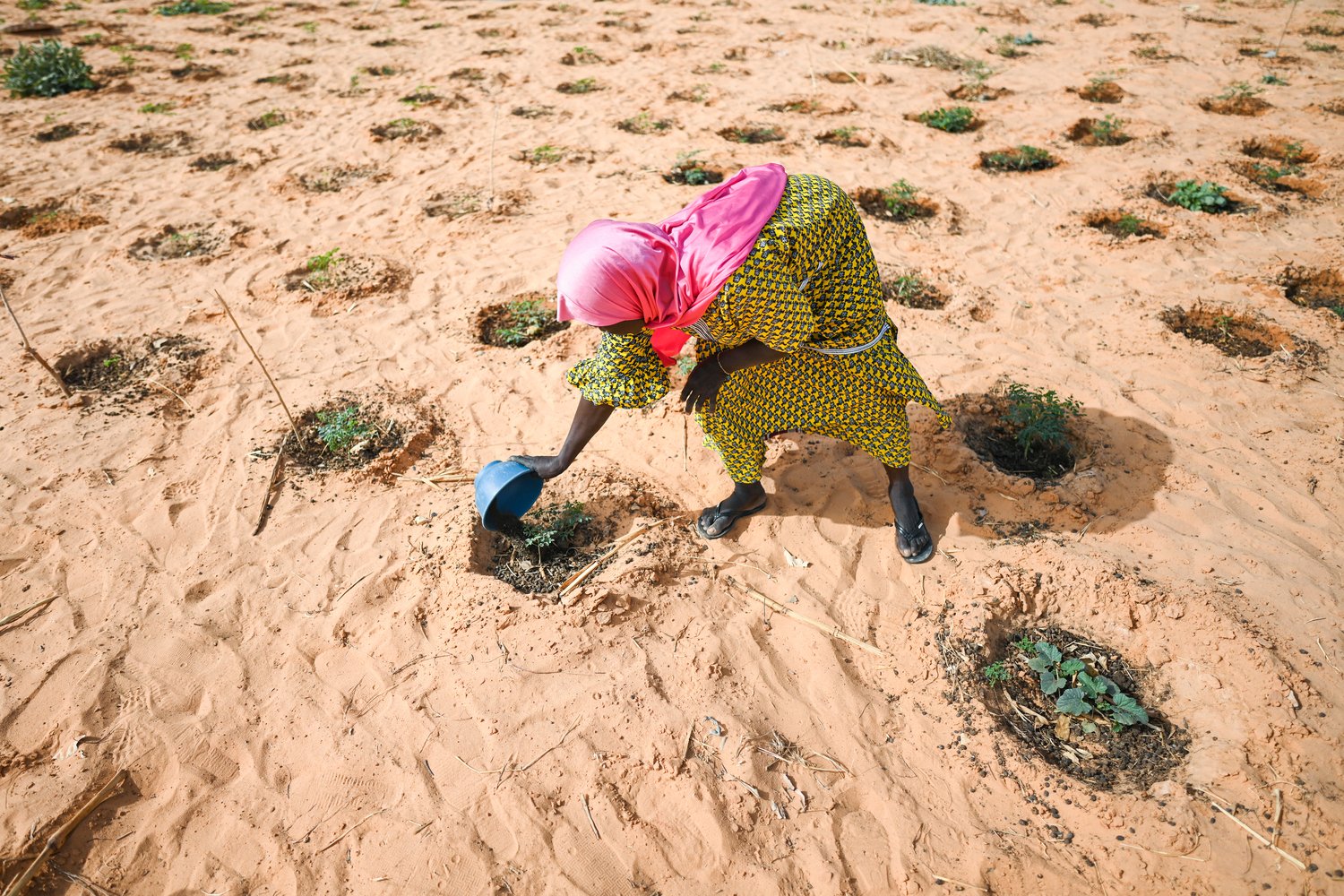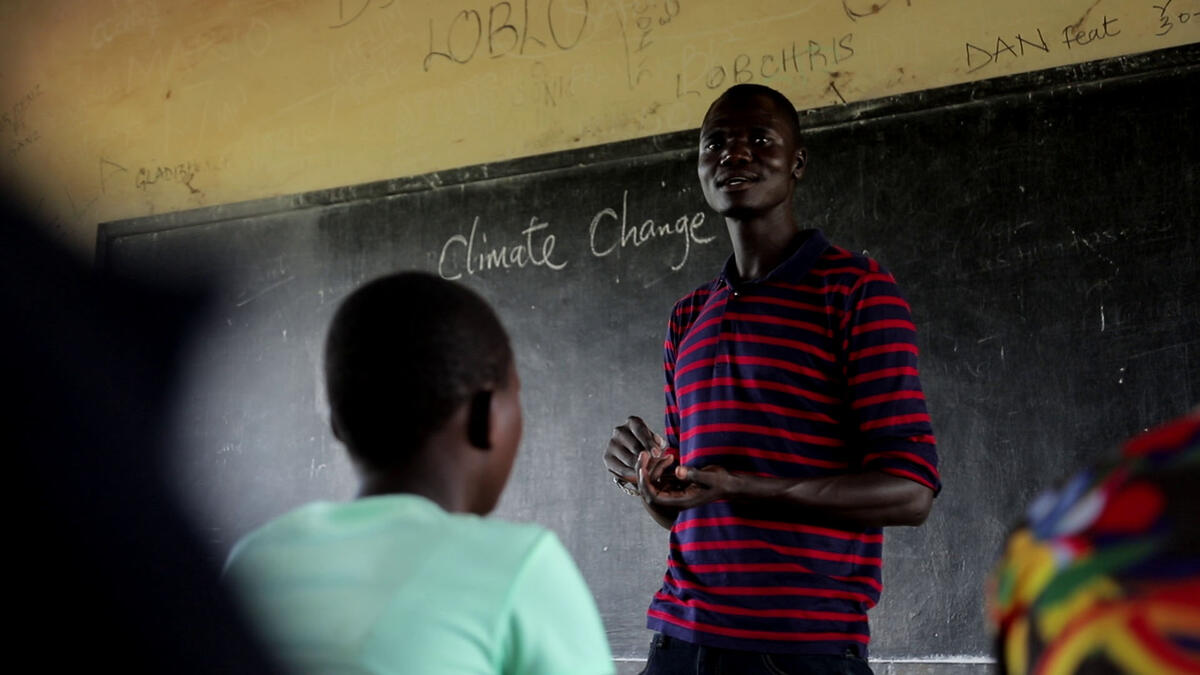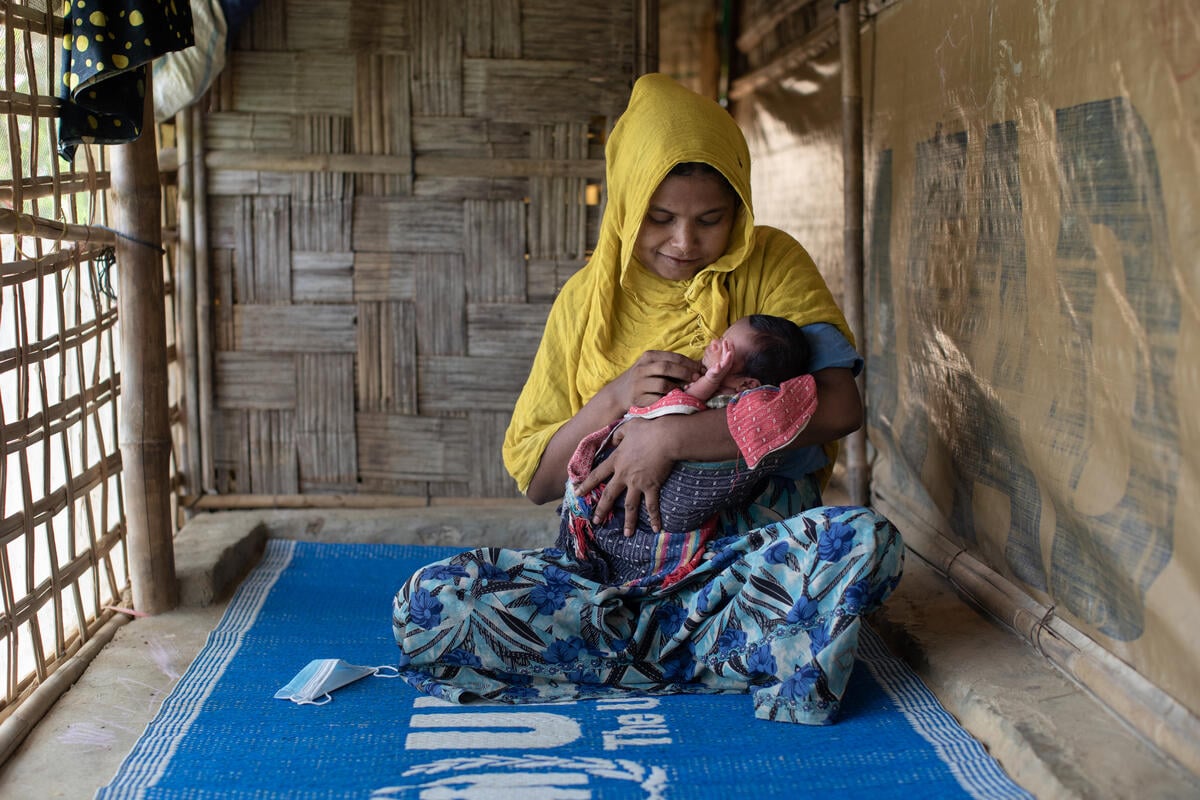Bottled gas scheme eases fuel crisis for Rohingya refugees
Up to now, the dwindling forests around Kutupalong have provided the only source of fuel to cook with for Rohingya refugees like Monowara and her family.
“We had to collect firewood. It took us the whole day,” the mother of five says of the trek of several kilometres. “It is dangerous. I was scared every time, every day.”
The daily hunt for fuel is now less of a necessity under a new project launched this week by UNHCR, the UN Refugee Agency, to provide liquefied petroleum gas (LPG) to more than 200,000 refugee households and some Bangladeshi host families.
The scale of the demand for firewood in the vast settlement around Kutupalong, home to more than 620,000 people, is hard to grasp: 730 tons a day, an area equivalent to at least four football fields. These figures are a problem on almost every level: the environment, health, flood control, the safety of women and children and even development.
Besides being concerned for his daughters when they go to collect fuel, Monowara’s husband, Mostafa Kamal highlights another worry common to families living in one-room bamboo and plastic shacks.
“The smoke was everywhere in the shelter. Everything was dirty. But, worst of all, the children were coughing all the time and the eyes burned. It was unbearable.”
More than 730,000 Rohingya have fled Myanmar since August 2017 joining tens of thousands of others already in Bangladesh.
“It is really dangerous out there, especially for the children.”
More than 620,000 live in Kutupalong, the biggest refugee camp in the world. The area is merging with other spontaneous settlements around Cox’s Bazar making a combined population of 900,000, more than San Francisco, Marseille or Amsterdam.
It is a giant city of bamboo and tarpaulin with small paths between. Appallingly muddy when it rains, dusty when it is dry. In the evening, the air everywhere is full of smoke.
Many refugees tell the same story. Azizur Rahman says: “It took the whole day to collect firewood. And we had to pay people there or they beat us up.”
Did he mean villagers or other refugees? “I don’t know, but it is really dangerous out there, especially for the children.”
Worse was the smoke in the windowless shelters: “My children were constantly ill.”
Dr. Tayabur Rahman Chowdhury, who runs the hospital in Kutupalong, says the smoke is a cause for concern.
“From all the medical problems we have here in the camp, the smoke related issues are the most.”
Mickaël Edon, UNHCR energy officer overseeing the project, surveyed the energy needs of the settlement with his team and they concluded that bottled gas was a safe and practical alternative to firewood. A pilot scheme involving 6,000 families was successful.
“Liquefied petroleum gas is the cheapest solution and simple to use”, says Edon. “And it is clean.”
UNHCR has provided gas and stoves to 6,000 households under the scheme, which is supported by the Bangladeshi government and other UN agencies, including the Food and Agriculture Organization, the International Organization for Migration and the World Food Programme.
Many of the stoves are made in the region, helping the local economy and creating jobs.
“No dangerous full-day trips to the woods any more.”
Announcing the scheme at a news briefing in Geneva, UNHCR spokesman Andrej Mahecic said: “The switch will also aid the protection of refugees because most of those collecting the firewood are women and children who can be at risk taking long and dangerous daily treks.”
He said that, as part of the scheme, refugees were receiving training on how to use the LPG cylinders and stoves, adding: “In addition to assisting refugees, every sixth stove and gas cylinder will be delivered to the vulnerable Bangladeshi families in local communities hosting Rohingya refugees.”
A relieved Monowara said with a smile: “My children are healthy. I am so grateful.”
Azizur agrees: “No coughing any more, no inflamed eyes any more – and no dangerous full-day trips to the woods any more,”
This means his children can turn their attention to school instead of making risky trip to the forest.
What about safety the safety of the cyclinders? Edon’s reply is unequivocal: “These cylinders are absolutely safe and fulfil the very high safety standards of UNHCR.”
After a recent fire engulfed LPG containers, they were the only things that survived undamaged, he said.














